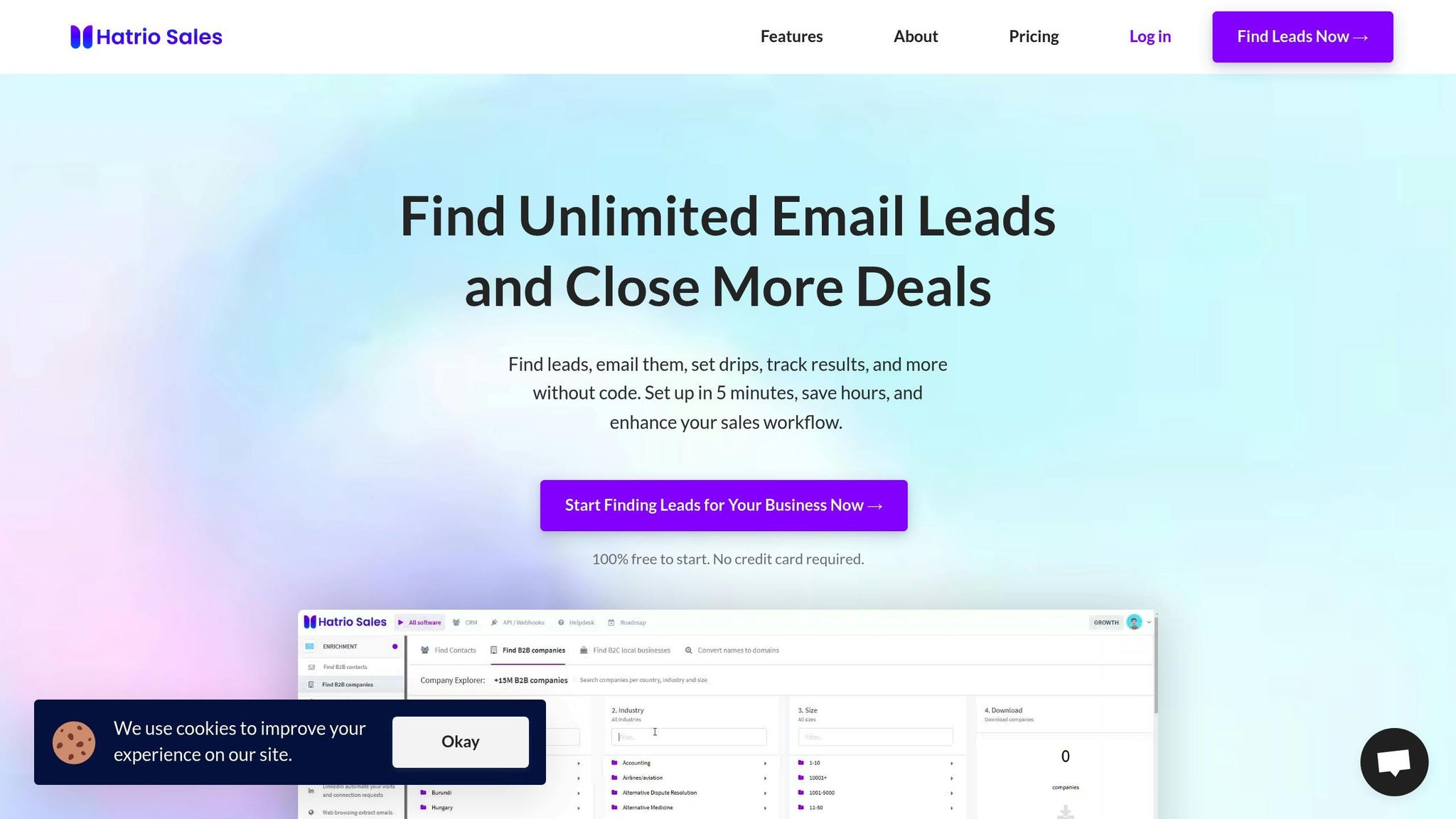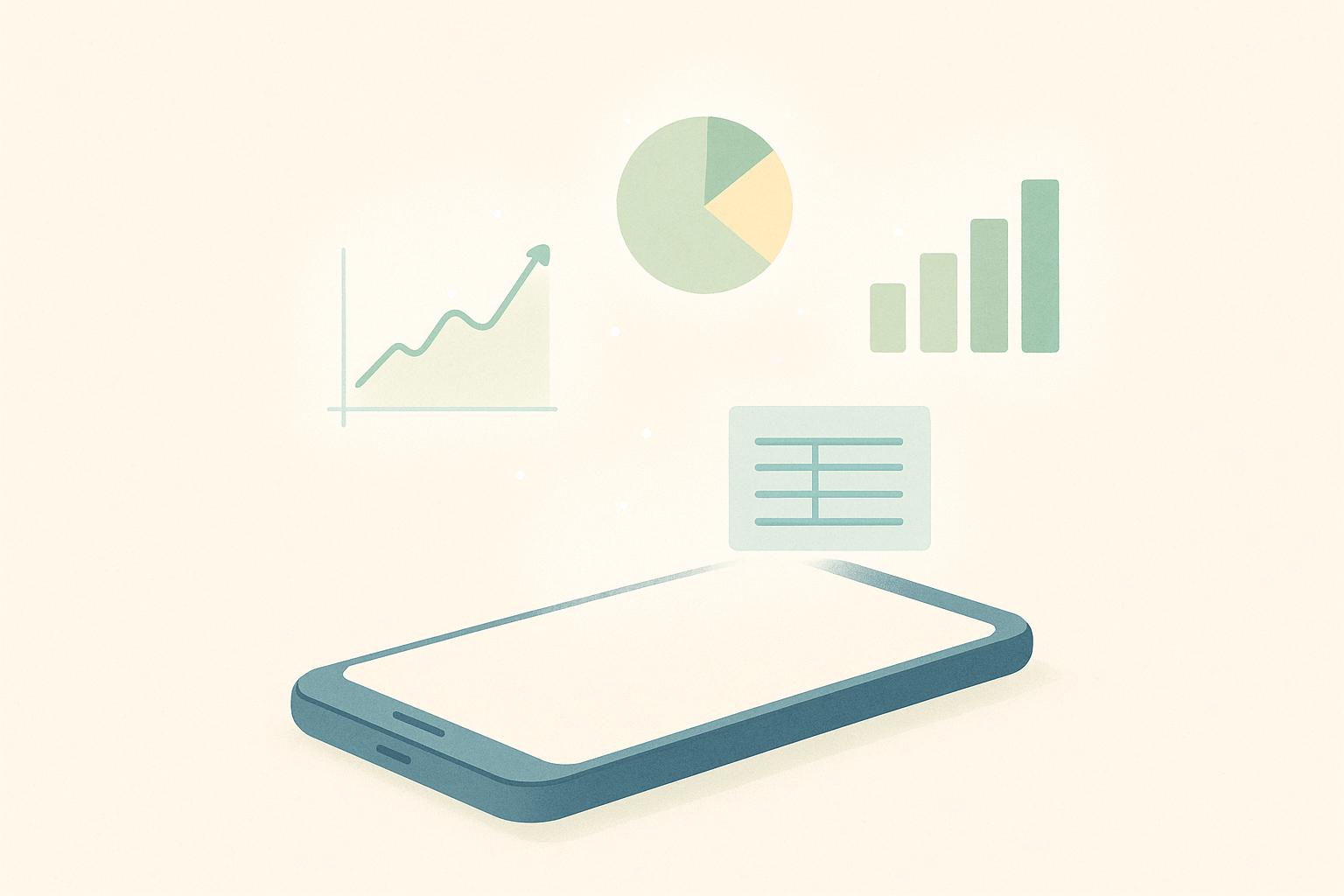CRM systems store sensitive customer data, making them prime targets for cyberattacks. Protecting this data is essential for maintaining trust and smooth operations. Here's how you can secure your CRM:
- Use Strong Authentication: Implement multi-factor authentication (MFA) to ensure only authorized users access your system.
- Encrypt Data: Protect stored and transmitted data using encryption, such as AES-256.
- Backup Regularly: Automate backups, store copies in multiple locations, and encrypt backup files.
- Update Software: Keep your CRM software up to date with the latest security patches.
- Monitor Activity: Track system usage with real-time logs, alerts, and regular audits.
- Train Staff: Educate employees on password management, phishing risks, and secure data handling.
- Follow Laws: Comply with regulations like GDPR, CCPA, and HIPAA to ensure data protection.
A layered approach combining technology, maintenance, and employee awareness is key to safeguarding CRM data.
Top 5 Salesforce Security Best Practices for Maximum Data ...
Core Security Measures for CRM Data
Keep your CRM data safe with two key practices: strong authentication and encryption. Here's how to secure your system effectively.
Set Up Strong User Login Rules
Implementing multi-factor authentication (MFA) is a must for safeguarding your CRM. MFA requires users to confirm their identity through multiple steps, ensuring that only those with proper authorization can access critical customer information.
Use Data Encryption
Encryption is crucial for protecting data, whether it's stored or being transmitted. By encrypting both types, you reduce the chances of data breaches or unauthorized access. For instance, Hatrio Sales employs high-level encryption to meet compliance standards and protect sensitive information.
System Maintenance and Backup Plans
Regular system upkeep and reliable backups are essential to protect CRM data, prevent loss, and ensure smooth operations during unexpected issues.
Set Up Data Backup Systems
A solid backup plan involves multiple layers of protection. Automate daily backups and add manual backups for critical updates. For example, Hatrio Sales runs incremental backups every 6 hours to reduce the risk of data loss.
Here are some key backup practices to follow:
- Store backups in multiple locations: Always keep at least three copies of your data - one primary and two backups stored in separate physical or cloud locations.
- Encrypt backup files: Use AES-256 encryption to protect backup files from unauthorized access.
- Test recovery procedures: Conduct monthly recovery drills to ensure your backups are intact and can be restored without issues.
Once your backup system is in place, the next step is to focus on keeping your software up to date.
Update Software Regularly
Keeping software updated is a critical part of CRM security. Older systems can have vulnerabilities that hackers may exploit. Hatrio Sales helps by deploying security patches automatically during off-peak hours, reducing potential disruptions while improving protection.
Best practices for updates:
- Turn on automatic security updates whenever possible.
- Schedule maintenance during low-traffic hours, such as between 2 AM and 4 AM local time.
- Check update logs every month to confirm all important patches are installed.
- Keep thorough records of all system changes and updates for future reference.
Staying on top of updates is key to maintaining a secure and reliable CRM system.
sbb-itb-b22f30c
Security Tracking and Response
Beyond authentication and backup strategies, keeping an eye on system activity and responding swiftly to issues is crucial for safeguarding CRM data. Here's how to monitor effectively and establish a solid emergency response plan.
Monitor System Usage
Keeping tabs on system activity helps spot unauthorized access and unusual behavior quickly. Hatrio Sales offers built-in tools that use automated algorithms to identify potential threats.
Here are some essential monitoring practices:
- Real-time activity logs: Keep track of login attempts, data access, and user actions around the clock.
- Automated alerts: Set up notifications for events like repeated failed login attempts, unexpected data exports, or access from unfamiliar locations.
- Regular audits: Conduct periodic reviews to uncover patterns or vulnerabilities.
Develop Emergency Response Steps
A well-thought-out response plan can limit damage and speed up recovery after a security breach. A structured approach should include:
-
Immediate Containment
- Assemble a response team with clearly defined roles.
- Isolate affected systems to prevent further damage.
- Revoke any compromised credentials.
- Back up the current system state for investigation purposes.
-
Assessment and Documentation
- Record when and how the breach was discovered.
- Identify which systems and data were impacted.
- Document all actions taken during the response.
- Keep track of team members involved in the process.
-
Stakeholder Communication
- Notify stakeholders promptly using pre-established communication channels.
-
Recovery and Prevention
- Restore systems using secure backups.
- Update and strengthen security protocols.
- Conduct a comprehensive review to identify weaknesses.
- Add new protective measures to prevent future incidents.
Hatrio Sales simplifies this process further with features like detailed activity logs and instant alerts, helping teams respond quickly to any suspicious activity.
Staff Training and Rules
Effective security measures depend heavily on the people carrying them out. Proper staff training and clear security rules are essential for protecting CRM data.
Train Staff on Security Basics
Training should focus on practical steps to safeguard CRM data, including making the most of Hatrio Sales' built-in security tools.
Key training areas include:
- Password management: Teach how to create strong passwords, store them securely, and use password managers. Encourage regular updates.
- Phishing awareness: Help employees recognize suspicious emails, links, and downloads that could jeopardize CRM security.
- Data handling protocols: Set clear rules for accessing, sharing, and storing customer information.
- Secure remote access: Ensure staff understand safe practices for accessing CRM data on mobile devices.
Offer quarterly training sessions and updates whenever there are new threats or features. Provide clear, accessible documentation for security procedures.
In addition to training, following legal requirements strengthens your CRM security.
Follow Data Protection Laws
Technical measures work best when paired with strict compliance with data protection laws. Here’s how some key regulations impact CRM use:
| Regulation | Key Requirements | Impact on CRM Usage |
|---|---|---|
| GDPR | Limit data collection, manage consent, allow data deletion | Collect only necessary data, keep consent records |
| CCPA | Provide opt-out options, disclose data usage, honor deletion requests | Track California resident data separately, process deletion requests |
| HIPAA | Protect health data, control access | Add extra security for health-related data |
Hatrio Sales offers features to help meet these requirements, such as:
- Data retention controls: Automate deletion of outdated data.
- Consent tracking: Record and manage customer permissions.
- Access logging: Track who views specific customer records.
- Export controls: Monitor and restrict data exports to prevent unauthorized sharing.
Keep detailed records of compliance efforts and training completions. With Hatrio Sales' compliance tools, managing these requirements becomes much simpler, ensuring your CRM data stays secure.
Conclusion
Safeguarding CRM data requires a well-rounded strategy that blends technology, regular upkeep, and employee awareness. A multi-layered security approach helps defend against evolving cyber risks while keeping business operations running smoothly.
Companies with strong CRM security measures, like Hatrio Sales, which protects over 104,000 websites, experience fewer breaches and maintain seamless functionality. With CRM systems playing a larger role in business operations, securing data is more important than ever. Hatrio Sales exemplifies this by securely managing over 1.5 billion records while adhering to strict data protection protocols.
Key components of effective CRM security include strong authentication, continuous monitoring, automated backups, employee education, and compliance with regulations. Together, these measures help protect sensitive customer data and ensure efficient business processes.
For more details on our security tools, check out the Hatrio Sales Security Features section.
Hatrio Sales Security Features

Hatrio Sales includes a range of features designed to keep your CRM data safe and secure.
The platform uses industry-standard authentication and controlled access, ensuring that only authorized individuals can view or modify sensitive information. Regular updates help address new security threats, while reliable backups and real-time monitoring safeguard data integrity and maintain smooth operations.
These measures, paired with strict compliance with regulatory standards, give businesses the confidence to manage their CRM data securely and efficiently.



